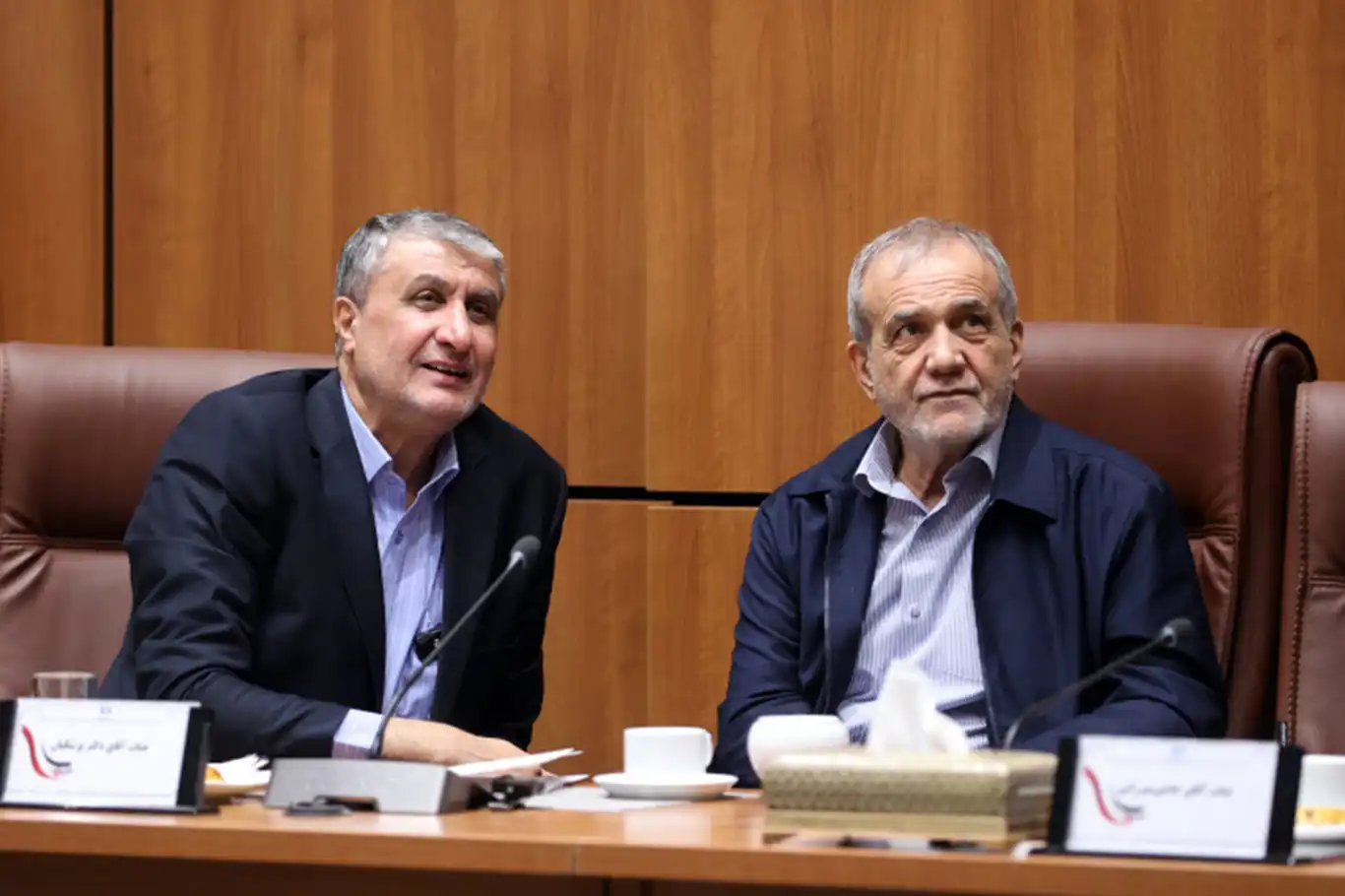Iran vows to rebuild nuclear sites stronger than before after Israeli, US strikes


Iranian President Masoud Pezeshkian pledged on Sunday that Iran will rebuild its damaged nuclear sites “stronger than before,” following joint Israeli and US strikes earlier this year that targeted key facilities across the country.
Speaking during a visit to the Atomic Energy Organization of Iran (AEOI), Pezeshkian declared that the attacks had failed to cripple Iran’s nuclear program or weaken the determination of its scientists.
“By destroying buildings... we will not be set back,” he said in remarks published on his official website. “Iran will build the destroyed sites stronger than before.”
The president reaffirmed that Iran retains all the scientific and technical expertise necessary to rebuild and advance its nuclear program despite the physical damage caused by the bombardments.
His comments came after months of tension following the unprecedented Israeli bombing campaign in June, which triggered a 12-day conflict between Iran and Israel. The attacks targeted nuclear and military facilities across Iran, as well as residential areas, resulting in the deaths of several senior Iranian scientists and military officials.
Iran responded with a series of ballistic missile barrages aimed at Israeli military sites and urban centers, escalating regional instability before the United States announced a suspension of hostilities in July.
Iranian Foreign Minister Abbas Araghchi described the damage at the time as “serious and severe,” noting that repair and reconstruction efforts were already underway.
Meanwhile, regional mediator Oman has renewed its diplomatic efforts to bridge the divide between Tehran and Washington. At the IISS Manama Dialogue conference in Bahrain on Saturday, Omani Foreign Minister Badr Albusaidi called for the resumption of stalled US-Iran negotiations.
“We want to return to the negotiations between Iran and the United States,” Albusaidi said, emphasizing Muscat’s continued commitment to regional stability through dialogue.
Iranian government spokeswoman Fatemeh Mohajerani confirmed on Sunday that Tehran had “received messages” regarding a potential restart of diplomatic engagement but declined to provide details.
Oman has hosted five rounds of indirect talks between Iran and the United States this year, focused on regional security, nuclear compliance, and sanctions relief. However, the sixth round, planned just days before Israel’s June strikes, was abruptly canceled.
Since then, Iran has also faced renewed international pressure after Britain, Germany, and France invoked the UN “snapback” sanctions mechanism, citing alleged Iranian non-compliance with the 2015 Joint Comprehensive Plan of Action (JCPOA).
Despite these challenges, Pezeshkian asserted that Iran would continue to defend its sovereignty, scientific progress, and peaceful nuclear ambitions.
“Iran’s strength lies not in buildings, but in the resolve of its people and scientists,” he said. “We will rebuild stronger, smarter, and more determined than ever.” (ILKHA)
LEGAL WARNING: All rights of the published news, photos and videos are reserved by İlke Haber Ajansı Basın Yayın San. Trade A.Ş. Under no circumstances can all or part of the news, photos and videos be used without a written contract or subscription.
The United States and China have agreed to establish direct military-to-military communication channels to prevent conflicts and reduce tensions, following a “historic” meeting between U.S. President Donald Trump and Chinese President Xi Jinping in Busan, South Korea.
The long-awaited Grand Egyptian Museum (GEM) officially opened its doors on Saturday in a lavish ceremony attended by dignitaries from around the world, marking a new chapter for Egypt's unparalleled archaeological heritage.
Iraq and Türkiye signed an agreement on Sunday to implement water infrastructure projects financed by revenue from Iraqi oil sales to Türkiye, a Turkish official confirmed.